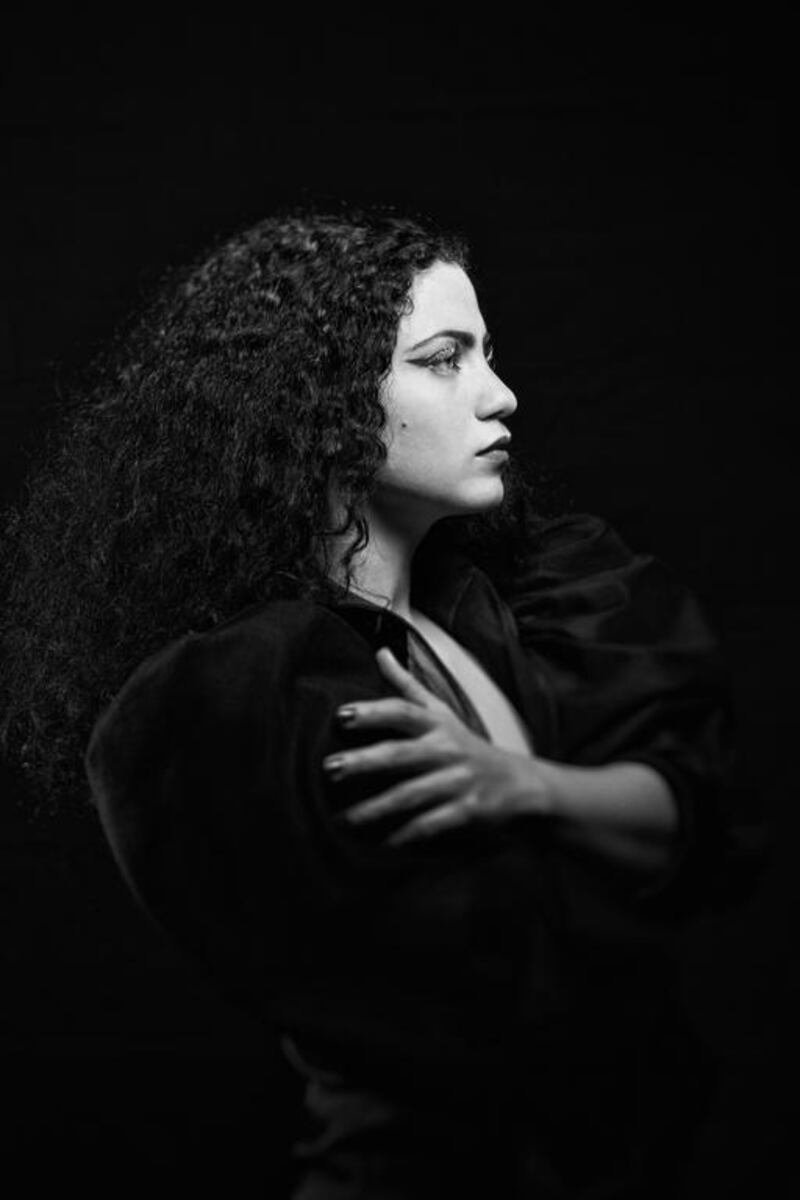Emel Mathlouthi has been described as the Tunisian Björk, the Fairuz of her generation, and the voice of the Arab Spring. Though her impassioned protest songs were once banned in her homeland, compelling her to spend seven years in semi-exile in Paris, the outspoken young singer was later embraced as a proud symbol of the new Tunisia after the toppling of Zine El Abidine Ben Ali’s oppressive regime in 2011.
The title track of her 2012 debut album, Kelmti Horra (My Word Is Free), even became a kind of unofficial anthem of the Jasmine Revolution.
But there is more to Mathlouthi than political folk music. Now based in New York, where she lives with her American husband and young daughter, the Tunis-born 34-year-old is about to release her sonically rich and stylistically diverse second album, Ensen. Recorded in seven global locations with multiple producers, the album is a bold mix of traditional and modern, electronic and acoustic. UAE fans will be among the first to hear the new tunes when Mathlouthi performs as part of the Wasla Festival at the Dubai Media City Ampitheatre on January 20. She purposely chose collaborators "from completely different musical universes" to help expand her creative horizons on Ensen. One was the celebrated Icelandic producer Valgeir Sigurðsson, famous for his work with Björk and Sigur Rós – adding extra weight to those "Arabic Björk" labels.
“It’s very flattering to get that comparison,” says Mathlouthi. “Björk is really an inspiration in the music world today. She is quite unique because she succeeded in getting people’s hearts by doing what she really wanted, by doing art. But every artist doesn’t want to get stuck in comparisons. I really hope I am doing something unique and original, too.”
Wary of European pop and electronic producers who might treat her voice as mere "Arabic ornamentation", Mathlouthi also recorded much of Ensen in Tunisia with local musicians.
“I had to meet up with my Tunisian friends, because I needed to be understood in that direction, too,” she says. “The album has deep connections with Tunisian rhythms, and very authentic North African instruments.”
Mathlouthi grew up singing in English, which she felt was a liberating rejection of her conservative Tunisian roots.
“English for me was the rock language, the rebel language, the revolutionary language, the awesome language,” she says with a laugh. She still sings in English, notably when covering songs by musical heroes such as Joan Baez and Leonard Cohen – but is now far more comfortable with the lyrical richness of her native tongue.
“Eventually I understood that my voice would sound deeper in Arabic,” says Mathlouthi. “Then I started writing my own songs in the Tunisian dialect, and sometimes in literary Arabic.”
In 2015, Mathlouthi performed Kelmti Horra in Oslo with a full orchestra to celebrate the Tunisian National Dialogue Quartet winning the Nobel Peace Prize for helping to ease their nation's transition from dictatorship to democracy. The singer still has mixed feelings about the cultural and political climate in her homeland, but is proud that Tunisia has made great progress in art, music and free expression.
“Believe it or not, it’s still not that easy for me to play there,” she says. “They opened a big door for me the year after the revolution – I played in big halls, it was amazing. And then, nothing. So I’m going back this year, I’m going to force my way in and perform again. It’s going to be awesome. That’s my big project.”
After three years of motherhood and songwriting, Mathlouthi is eager to tour again this year. One of her first performances will be at the newly launched Wasla festival on Friday. What will the show be like? Expect the unexpected.
“I’m going to definitely play songs from the new album, and songs that don’t exist on any recording yet, because actually the new album was recorded two years ago and I’m already somewhere else,” she says. “We’re also going to be doing new revised versions of songs from my first album, and some surprises. We will see how we feel onstage.”
By fateful coincidence, Mathlouthi performs in Dubai on the same day Donald Trump is inaugurated in Washington. Like many artists and musicians, the singer is no fan of the president-elect.
“This is going to be a real struggle between good and evil,” she warns.
Given the planned protests America may soon have a “Jasmine Revolution” of its own. Perhaps Mathlouthi could supply the soundtrack?
“With big pleasure,” she says with a grin. “I’m ready.”
• Wasla Festival is at Dubai Media City Ampitheatre on January 20. Tickets available at Virgin Megastores from Dh295
artslife@thenational.ae





